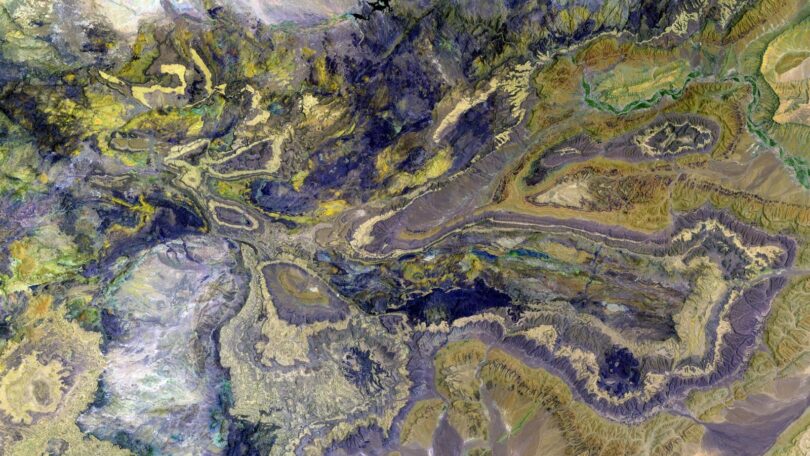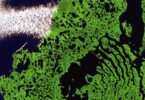As we navigate a changing climate, understanding meteorology becomes increasingly crucial. This critical evaluation will explore the importance of meteorology learning, shedding light on its significant role in predicting weather patterns, mitigating natural disasters, and informing decision-making processes. By delving into the complexities of meteorological science, we aim to emphasize the urgency of investing in meteorology education and research.
1. Exploring the Basic Principles of Meteorology and Its Practical Applications
Meteorology learning is crucial in understanding the intricate workings of the atmosphere and its impact on our daily lives. By exploring the basic principles of meteorology, individuals can gain a deeper insight into weather patterns, climate change, and natural disasters. This knowledge is essential for making informed decisions and preparing for potential environmental challenges.
Practical applications of meteorology extend far beyond predicting the weather. From agriculture to aviation, and from energy production to disaster management, meteorological insights play a crucial role in various industries. Understanding meteorology can help improve safety measures, optimize resource allocation, and mitigate risks associated with extreme weather events.
By emphasizing the importance of meteorology education, individuals can develop a greater appreciation for the environment and the need for sustainable practices. Through innovative teaching strategies and hands-on experiences, educators can shape future generations’ outlook on climate change and empower them to make positive contributions towards a more resilient and environmentally conscious society.
2. Analyzing the Current Standards and Methods in Meteorology Education
Quality meteorology education is paramount in shaping the future of our understanding of weather patterns and climate change. The current standards and methods used in meteorology education must be critically analyzed to ensure that students are equipped with the necessary knowledge and skills. By evaluating the effectiveness of current practices, we can identify areas for improvement and innovation in teaching meteorology.
Key points to consider in this evaluation include:
- The relevance of curriculum content to real-world meteorological phenomena
- The use of technology and interactive learning tools in the classroom
- The integration of hands-on experiences such as fieldwork and internships
- The inclusion of diverse perspectives and voices in meteorology education
It is essential to address any shortcomings in the current standards and methods to ensure that students are prepared to tackle the complex challenges posed by climate change. By continuously assessing and improving meteorology education, we can cultivate a new generation of informed and empowered individuals who are equipped to make a positive impact on our environment.
3. Assessing the Role of Meteorology in Influencing Environmental Policy Decisions
Meteorology plays a crucial role in influencing environmental policy decisions, as it provides valuable data and insights into weather patterns, climate change, and natural disasters. Understanding meteorology is essential for policymakers to make informed choices that will have a positive impact on the environment and society as a whole. By integrating meteorological information into policy-making processes, governments can create more effective strategies for addressing environmental challenges.
One of the key ways meteorology influences policy decisions is by informing risk assessment and management strategies. Meteorologists can provide early warnings for severe weather events, such as hurricanes or droughts, allowing policymakers to take proactive measures to protect communities and infrastructure. Additionally, meteorological data can help policymakers assess the potential impacts of climate change and develop adaptation and mitigation plans to reduce risks.
Overall, meteorology plays a critical role in shaping environmental policy decisions by providing essential information and insights that can guide effective decision-making. By recognizing the importance of meteorology in policy development, policymakers can create more sustainable and resilient policies that address pressing environmental issues.
4. Shaping Future Generations’ Outlook on Climate Change Through Meteorology Learning
Meteorology learning plays a crucial role in shaping the future generations’ outlook on climate change. By understanding the fundamental principles of meteorology and its practical applications, students can gain a deeper appreciation for the impact of weather patterns on the environment. Analyzing the current standards and methods in meteorology education is essential to ensure that students receive the most up-to-date information and training in this field.
Moreover, meteorology education plays a significant role in influencing environmental policy decisions. As students learn about the relationship between weather patterns and climate change, they are better equipped to advocate for sustainable practices and policies. Educators must craft effective teaching strategies to engage students and enhance their understanding of meteorology. By fostering a curiosity and passion for weather science, we can empower future generations to become advocates for environmental stewardship and climate action.
5. Crafting Effective Teaching Strategies for Enhanced Meteorology Education
Effective teaching strategies are crucial in enhancing meteorology education and cultivating a deeper understanding of weather patterns and climate change. Utilizing interactive tools such as simulations, hands-on experiments, and real-time data analysis can engage students and make complex meteorological concepts more tangible. Encouraging critical thinking and problem-solving skills through case studies and group discussions can also deepen students’ comprehension and retention of information.
Incorporating diverse teaching methods, such as field trips to meteorological stations or guest lectures from industry experts, can provide students with real-world perspectives and applications of meteorology. Additionally, incorporating technology, such as weather tracking apps and online resources, can make learning more dynamic and relevant to students’ daily lives. By continuously evaluating and adapting teaching strategies, educators can ensure that meteorology education remains engaging, informative, and impactful in shaping future generations’ understanding and action towards climate change.
Key Takeaways
In conclusion, meteorology learning is undeniably crucial in our understanding of weather patterns and climate change. It enables us to make informed decisions that can help mitigate the impacts of natural disasters and contribute to the sustainability of our planet. However, there are significant gaps in the current educational systems that need to be addressed to ensure that individuals are adequately prepared to face the challenges posed by a changing climate. It is imperative that meteorology learning be prioritized in education curriculums to equip future generations with the knowledge and skills needed to tackle these pressing issues effectively.
References:
- Ahrens, C. D. (2019). Meteorology Today: An Introduction to Weather, Climate, and the Environment. Cengage Learning.
- National Aeronautics and Space Administration. (2020). Climate Change: How Do We Know? Retrieved from https://climate.nasa.gov/evidence/
- American Meteorological Society. (2021). Education & Careers. Retrieved from https://www.ametsoc.org/index.cfm/ams/education-careers/








Leave a Comment